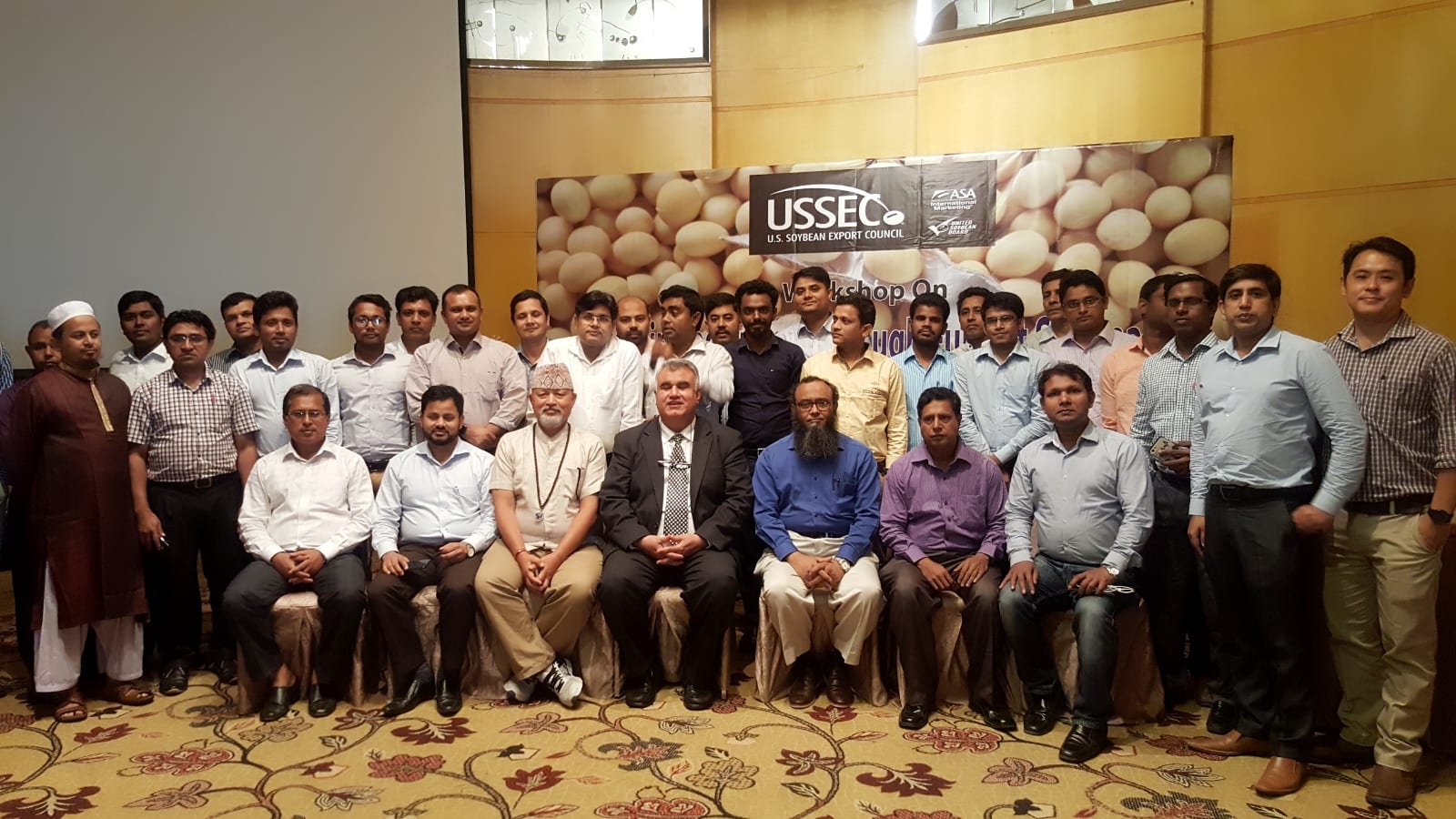ASC Feed Millers Attend USSEC Full Fat Soybean Meal Workshop in Bangladesh
- Category:
- Animal Utilization
- General News

USSEC organized a workshop, “Protein and Energy through Full Fat Soybean Meal for Animal Feeds,” in Dhaka, Bangladesh with the help of Dr. Mian Riaz - Head, Extrusion Technology Program Graduate Faculty, Food Science & Technology Program Process Engineering Research & Development Center, Texas A&M University. About 80 feed millers from Bangladesh and Nepal participated in the workshop.
The objective was to educate feed millers on the importance of using full fat soybean meal to produce high quality feed and save costs on formulation. To an extent, this approach also helped provide solutions to reduce cost and offset country-specific procurement and taxation issues. Whole bean imports have no tax in Bangladesh, while soybean meal imports incur a 10 percent import duty.
“This difference has brought inclination amongst feeds millers to set up their own full fat soybean meal production units, use whole U.S. soybeans and take advantage of this tax differential which amounts to approximately $45 per metric ton (MT),” stated Masum Reja, USSEC’s country representative in Bangladesh.
Yet another advantage seen by feed millers is the procurement of good quality oil for poultry feeds; full fat soybean meal is included with the oil component, which meets the requirements of a feed formulator.
The participants learned that full fat soybean meal offers protein and energy in a dense form and can be considered as a feed enrichment tool by the formulators. This proposition comes in especially handy when poultry diets have to achieve a body weight of 2 kilograms (kg) at 1.4-1.45 feed conversion ratio (FCR) in the hot and humid climate of the Asia Subcontinent (ASC) region. It also saves money on formulation when corn and oil, energy sources in feeds, prices are high.
Dr. Riaz gave effective presentations that demonstrated seven different ways to process soybeans to convert them to soybean meal. Through this, the participants gained knowledge on the basics of full fat soybean production. He also educated the participants on extrusion technology and ways to set up and run a full fat extruder plant to produce best quality full fat soybeans. He spoke in detail about nutritional parameters that full fat soybeans could offer in feeds and methods to determine the quality of full fat soybean meal for usage in feeds.
Dr. Pawan Kumar, USSEC animal utilization consultant, discussed different market situations. He demonstrated how raw material price dynamics could save cost when full fat soybeans are used in feeds. He mentioned that cost of conversion of soybean to full fat soybeans is one-third the cost of solvent extraction to produce meal and oil. Further, he stressed that the cost of adding full fat soybeans into feed is cheaper than the cost of mixing oil in to feed. Full fat soybeans also add convenience in feed mixing and obtaining uniformity in mixing, while improving the quality of feed and saving costs in feed manufacture.
Most of the participants were already manufacturing full fat soybeans and a few of them were using full fat soybeans. This prompted them to ask many questions, which helped to clear doubts. Dr. Riaz and Dr. Pawan answered all questions.
In addition to USSEC’s support for Bangladesh’s crushing industry, these efforts will enhance the preference of Bangladeshi entrepreneurs for U.S. soybeans. Bangladesh imported 938 thousand metric tons (TMT) of U.S. soybeans in 2016/17. In the current marketing year, September 2017 – March 2018, it has imported 562 TMT so far.

